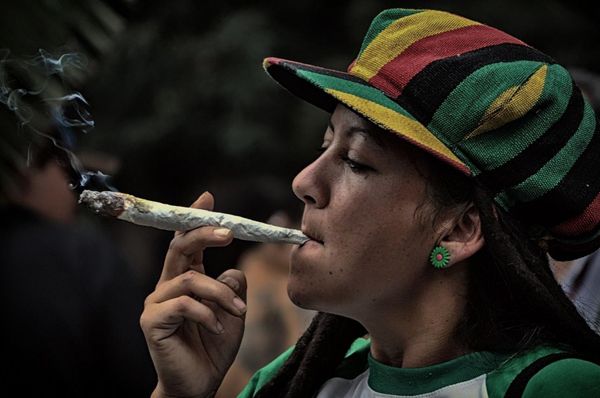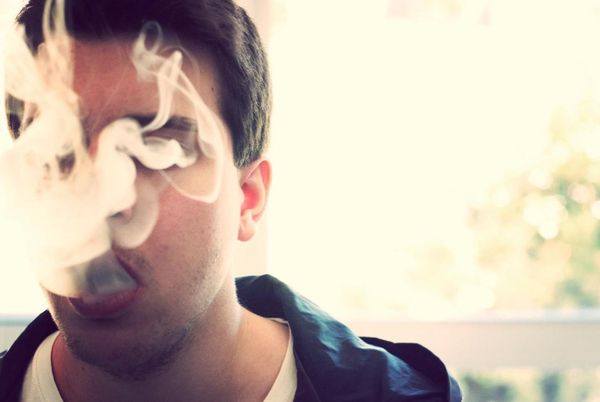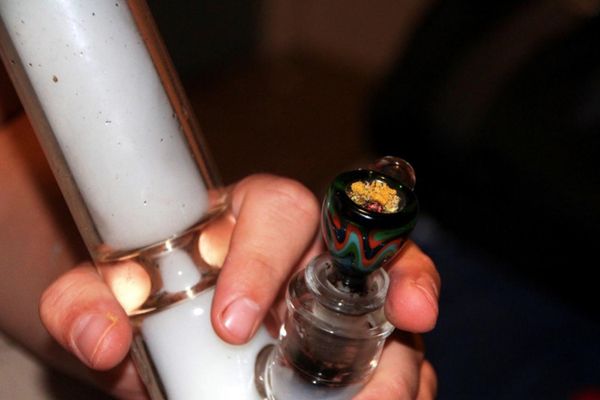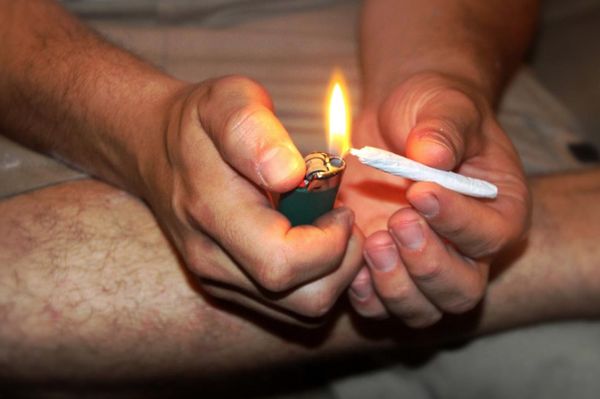- Anyone can suffer a bad cannabis trip.
- And while it is possible to control some factors that can result in a bad trip, it's not a bad idea to know how to proceed, in case you still fail to avert it.
- Breathe, calm down and relax until the psychedelic episode passes. Those should be your top priorities.
- But the solution is rife with nuances, which we will explain here.

Because everyone is unique, the effects people experience when using cannabis in its different forms are equally so, even in that least pleasant variant of them all: the "bad trip," also known as a "freak-out," "bad high," "downer" or "bad scene." Whatever one calls it, it´s is a psychedelic crisis that can entail a wide range of symptoms.
Some think the experience of a bad trip is a rookie mistake produced by errors like not drinking enough water, or simply the clumsiness of beginners just getting started. However, even the most seasoned cannabis consumers can suffer a bad trip on grass. In fact, it may be due to something entirely circumstantial, like one's mood when consuming, being influenced by the people you're with, the music you're listening to, or even the kind of light in the room.
Such is the variability when it comes to trips that not even the amount consumed seems to be definitive: while some attribute bad trips to the consumption of a dose that is too large, due to the high percentage of THC current cannabis strains pack, there are others who identify them as stemming from small doses too. In the latter case the amount of cannabis consumed would have a relatively weak effect, making possible some psychological resistance by the body to the trip affecting it. Thus, it is clear that even when an effort is made to control all these factors, it is still something unpredictable that can surprise anyone.
A bad trip can also be triggered, for example, by using marijuana contaminated with traces of pesticides or fertilisers, although the studies performed on the subject involve more questions than answers, and do not explain the risk in detail or in a quantifiable way.
Finally, we must bear in mind that cannabis, when ingested, has much more intense and long-lasting effects than when it is inhaled, so neophytes who eat foods containing marijuana are vulnerable to bad trips. Science has an explanation: when cannabis is eaten, rather than being smoked or vaporised, the liver breaks down THC into a new compound, called 11-hydroxy-THC.

This metabolite is more potent than THC and crosses the blood-brain barrier more easily, producing more psychedelic effects in the brain. For people who are just starting out, marijuana candies or light teas could be a simple way to consume cannabis safely while they are still learning how it affects their bodies.
In terms of symptoms, there is no clinical diagnosis of "cannabis psychosis." It is possible for these symptoms to appear and escalate, featuring a snowball effect. Perhaps there is someone around you who you first notice is silent and withdrawn. These signs grow and grow, and can lead to an anxiety crisis and episodes characterised by fear and paranoia.
Thus, the consumer who experiences a bad trip may notice that he loses control, as it affects his notions of time and space. There are extreme cases in which one ceases to be aware of himself or his body parts, and he can even have slight hallucinations. All this is mixed with related physical symptoms; anxiety, without going any further, which could cause problems breathing problems, or tachycardia.
However, you should not panic: having such a negative experience is rare. While it is relatively common to experience a specific moment of anxiety, or abnormal visual perceptions , only if these are prolonged or potentially serious do they require the consumer or those accompanying him to take action.
How do you prevent it?
Given the variety of factors that can come into play to produce bad trips, there is little one can do to prevent them. However, there is a little recipe that should make it possible to reduce the chances of suffering this experience.
It all has to do with controlling your surroundings as much as possible. Thus, it is advisable to be in a familiar and quiet place surrounded by people one trusts, and that will not stress him, in any case. Under such conditions it is difficult for the situation to get out of control, and any negative experience will probably have only short-term effects. In addition, being in good health, physically and mentally, can be key to preventing a bad trip, as dizziness and paling skin has a lot to do with one's blood pressure.
If your body still responds to marijuana consumption with one of these psychedelic crises, there are ways to control the bad trip to keep it from becoming truly serious. Both you and those around you can follow a series of recommendations to minimise symptoms.
First of all, the most important thing is to avoid panicking when you notice the first signs that something is wrong. Trying to stay calm is key. Popular culture, along with the personal opinions of users in various Internet forums, have produced a long list of tips, ranging from the consumption of sugary products, such as Coca-Cola, to the use of medications, like aspirin, which allegedly counteract the effects of a bad trip.

However, you should simply try to relax. Breathe easy, inhaling through the mouth, and exhale slowly, relaxing each and every one of your muscles, and wait for the bad trip to pass and for its effects to fade. These should be your main objectives. You can also act as you would if suffering a drop in blood pressure, with a manoeuvre that few employ when a bad trip hits: elevate your legs. The "sugar crash theory" to explain the causes of a bad trip does not identify its true origins or offer a corresponding remedy to address it.
To deal with it the best thing to do, at first, is to focus on peace and calm around us. Do not listen to music or watch television to clear the mind. In this way it will be easier for you to focus on relaxing your body. Once you have done so you can put on some music that is calming, or familiar, or even a movie that you like.
A change of scenery is also a good idea: if you're indoors, going outside helps, and vice versa. Anything that distracts you from your thoughts at the time is also helpful. Doing some stretching? Having some green tea to relax? Go right ahead. Maybe a juice? Fantastic. Hydration is an important factor to minimise the effect. All this, while keeping in mind that the best thing you can do is try to chat with a friend, who can take over the reins of the conversation and soothe you.
How can you help?
Other times you won´t be the one in trouble. Rather, you'll be with a friend who is on a bad trip after consuming cannabis. In this case it is also a good idea to know what to do to help him out and make the experience more bearable.

To begin with, don't repeat obvious things like "calm down." Talking is a good idea, but ask specific questions, such as what the person is feeling at the time, or if he can distinguish a particular part of his body. All this, without forgetting that when we are with someone in this situation we have to be patient and understanding.
Also, it is very useful is to remind the "traveller" about what he has consumed. This will allow him to realise that what is going on is just one of the possible effects of what he has taken, and that it is a just a question of time before everything returns to normal.
Finally, in this conversation it is helpful to discuss things that allow the user to reconnect with reality. For example, telling him what time it is may serve to mitigate the distortion of time that he could be experiencing.
In any case, both for the traveller and the companion who is a witness to his friend's psychedelic crisis, it is important to always keep in mind that, though it may involve a tachycardia, exacerbated by anxiety, it is always an experience whose intensity will vary depending on our ability to control it: breathe, calm down and wait for the bad trip to pass. It always does. And, remember that, like many other things in life, everyone is different; just because something is not pleasant for one person does not mean that it cannot be a safe and pleasant experience for others.



Comments from our readers
Read comments in other languages:
Did you like this post?
Your opinion about our seeds is very important to us and can help other users a lot (your email address won't be made public).